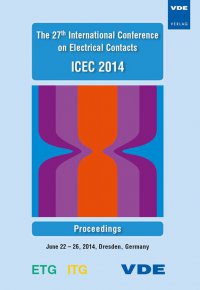Increased requirements on the switching behaviour of industrial switchgear caused by new high-efficiency motors
Conference: ICEC 2014 - The 27th International Conference on Electrical Contacts
06/22/2014 - 06/26/2014 at Dresden, Deutschland
Proceedings: ICEC 2014
Pages: 7Language: englishTyp: PDF
Personal VDE Members are entitled to a 10% discount on this title
Authors:
Kraetzschmar, Andreas; Feil, Wolfgang; Herbst, Reinhard; Klann, Hans; Viehauser, Tobias (Siemens AG, Sector Industry, Industrial Automation, Amberg, Germany)
Abstract:
The EU Commission Regulation (EC) No. 640/2009, Ecodesign Requirements for Electric Motors has been in effect since June 2011. This regulation imposes mandatory minimum efficiencies for many types of three-phase, low-voltage electric induction motors. These new motor generations have much higher start-up currents, which require a higher switching capacity and current carrying capacity far above the current standard IEC 60947. This trend will be enforced by additional changes within the motor standard IEC 60034 and further ecodesign initiatives in future. The altered behaviour in start-up and operation of IE2, IE3 and IE4 motors is quantified. This leads to increased requirements in respect of make and break operations and also endurance. In order to ensure a proper functionality in practical use it is necessary to improve design concepts, dynamic behaviour and contact materials. This paper considers different measures, particularly a well-adapted making behaviour of low voltage switching devices.


